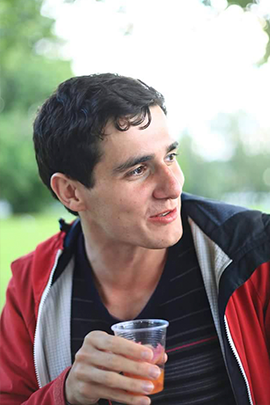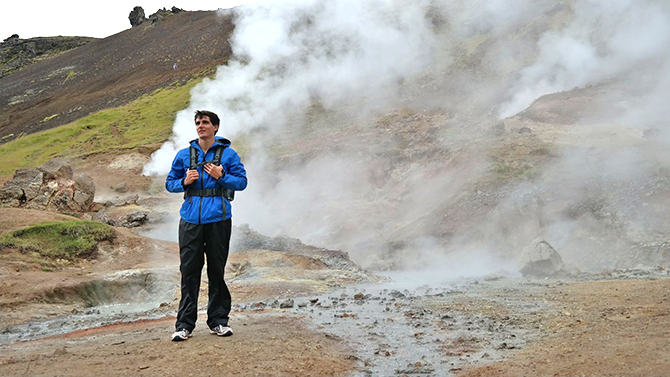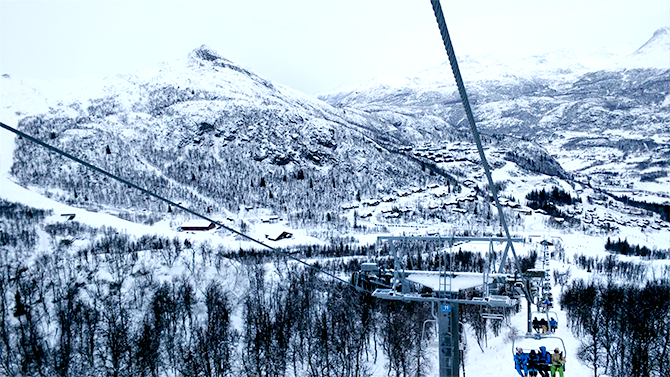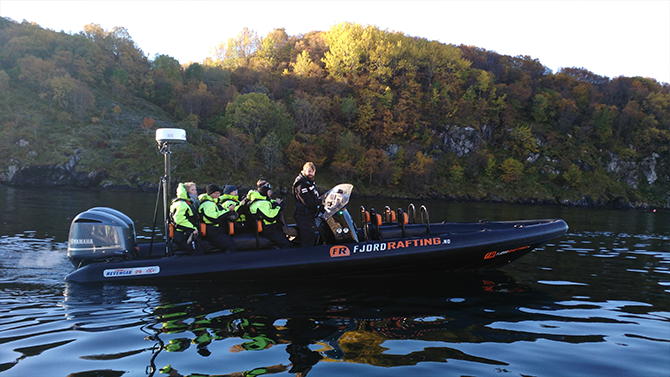Alexis took the chance to study in two Nordic countries
Alexis Morfin from Nice, France studied the joint programme in Polymer Technology. After his studies, he took a job as a research engineer at specialty chemicals and advanced materials company Arkema where he formulated new polymer powders for 3D-printing.

Hi Alex, why did you choose this programme?
After graduating from the École Polytechnique, a general engineering school near Paris, I had to do at least one year of specialisation. A lot of my classmates chose to go for a one-year master’s degree in the US, UK or France since a two-year master’s can seem a bit long. I found the joint master’s programme in Polymer Technology very appealing, as it was a two-year programme leading to two master’s degrees in two different countries, leaving me no time to get bored.
Which universities did you attend?
I started at Chalmers and finished at DTU. Why? For the first year, general topics were taught more at KTH and Chalmers. However, I couldn't choose KTH because at that time my university (École Polytechnique) had a special agreement with KTH and all admissions had to be made through the selection of the École Polytechnique. Unfortunately, this programme was not a part of the agreement. But Chalmers was a good choice too. For the second year, I had to specialise even more (yes, it is possible to specialise within the already specialised polymer field). DTU was my obvious choice, because the courses they offered were the best fit for me and also because I knew that the Danish Polymer Center of DTU is a very good research centre where I could do an interesting master’s thesis during the last semester.
What happened after your studies?
After finishing my master’s thesis, I began to look for jobs mainly in France, Germany (where I did my first master’s thesis in soft matter science), Denmark and Sweden, as they were countries where I had a degree or experience from. After a few interviews in France at Solvay, Saint-Gobain and Arkema, and in Sweden at Borealis, I decided to take the job offer from Arkema in the CERDATO Research and Development centre North-West of Paris.
What do you do at work?
In my position as a research engineer at Arkema, I formulate new polymer powders for 3D-printing. I really like my job. I come up with various ideas and then lead the project testing the idea. Depending on the results I get, I can either improve the idea or come up with another one. At the moment, I have a couple of projects going on that can be directly useful for the development of new products or for a better understanding of the behaviour of polymer powders.
I carry out the tests either by myself or with the help of technicians who perform tests for me on complicated machines. Sometimes, I have to conduct my trials at other companies, because we want to test out other machines or run tests we don’t have the machines for. For instance, two weeks ago, I went to Germany to conduct new trials.
It also happens that clients come to us with their needs and then I have to be there to provide expertise. The Swedish companies Volvo and Thule recently came to France to talk about their portfolio with us.
My long-term plan is to continue my job at Arkema, managing a few technicians, then move on to different research and development positions within the company and managing more and more interesting projects.
Do you speak any Swedish?
A little. It is very useful to be able to speak some Swedish when talking to Swedish clients. For example, I can say that “jag älskar lagom och äter kanelbullar varje dag” (I love ‘lagom’ and I eat cinnamon buns every day). Seriously, it is really useful to create a more trustful and closer partnership as they feel you are as involved in their business as you are in their culture.
What was the best aspect of your studies?
The best aspects were the discovery of a new culture, new language and new teaching methods (half the teaching time compared to France). It required adaptation, and I am so proud now to have lived for two years in Sweden and Denmark. Maybe the best thing that happened to me is that I met my girlfriend in Sweden and we are still together now.
And the greatest benefit of studying at two Nordic universities compared to doing an entire master’s programme at just one?
The first thing is that I got to experience life in two different countries. I had never been to any of the Nordic countries before and the risk of being stuck for two years somewhere you don’t like was kind of a scary commitment. If that had been the case, I would at least get to change country after one year. In the end, it turned out to be amazing in Sweden, but I am glad I changed after one year because it gave me the opportunity to discover other people, culture, language ...
The second greatest benefit was the course selection. Since polymer technology is such a specific subject you can't find three semesters of courses within the area in the same university, the number of courses on polymer technology are too limited. But, if you change university after one year, you get more interesting courses to choose from. It is an amazing opportunity.
Finally, the two master’s diplomas is an appealing deal, even though it might not be the most important thing at job interviews. They were more interested in my having adapted in different countries with different cultures than the two diplomas themselves. But eh, nice to have them of course.
What is your best memory from your time at the universities?
I would say that fika is of the best concepts of the world. I loved having fika every hour with my classmates and the teachers. Great moments. I have to confess, this is the main reason why I preferred Sweden over Denmark.





